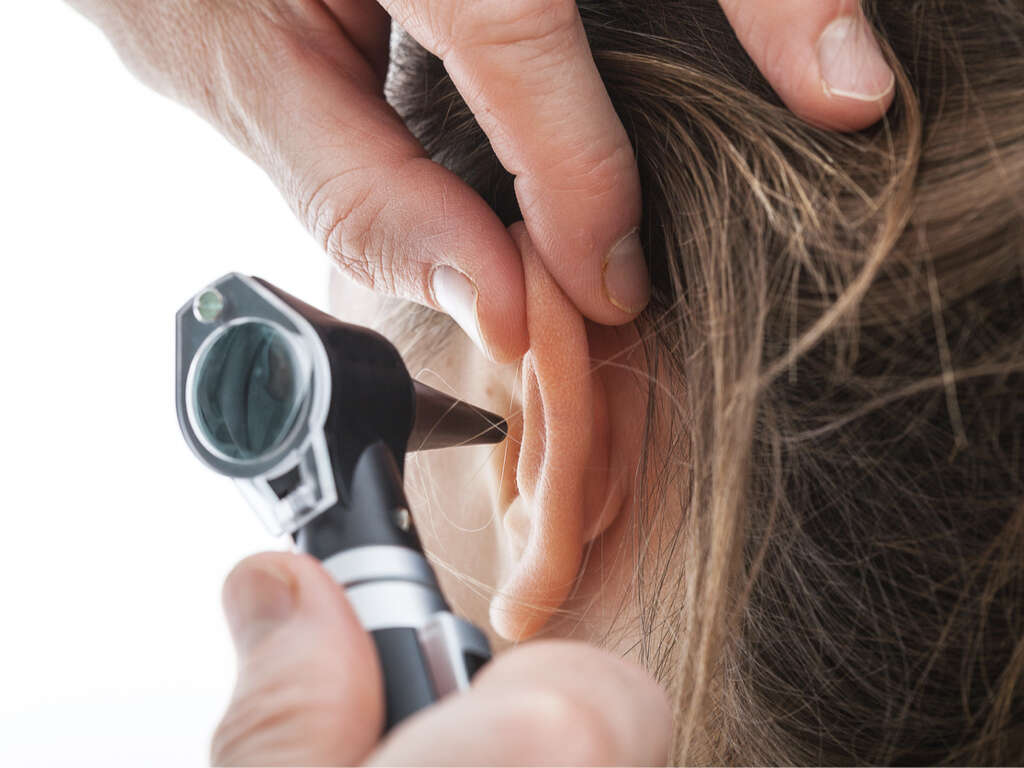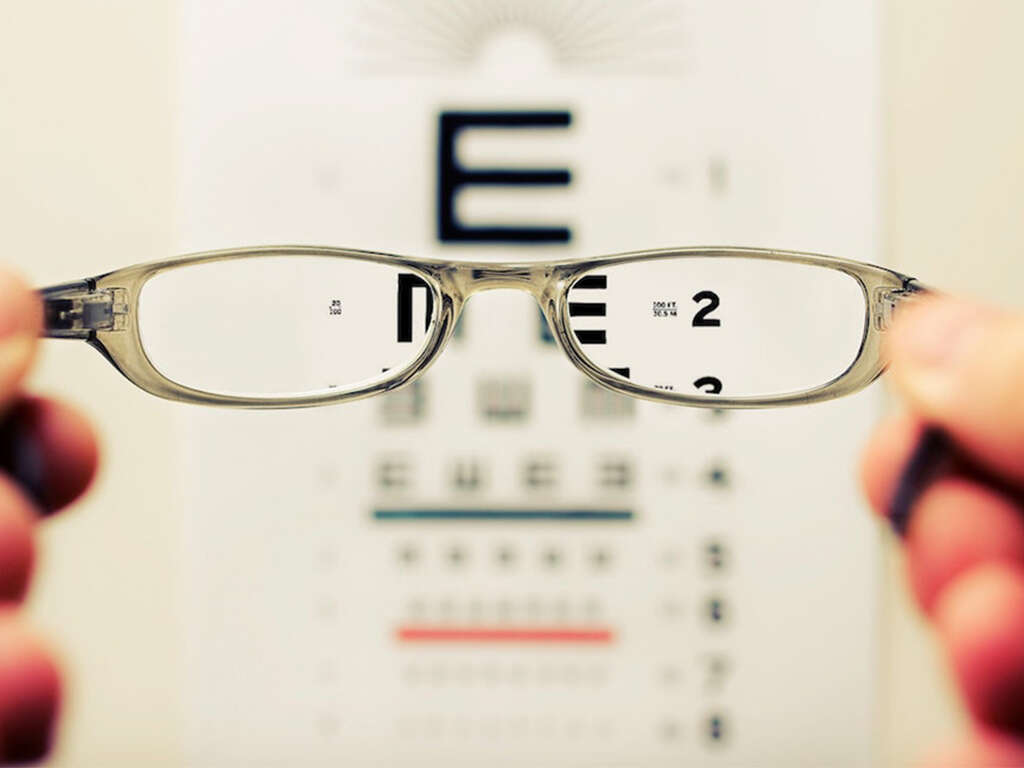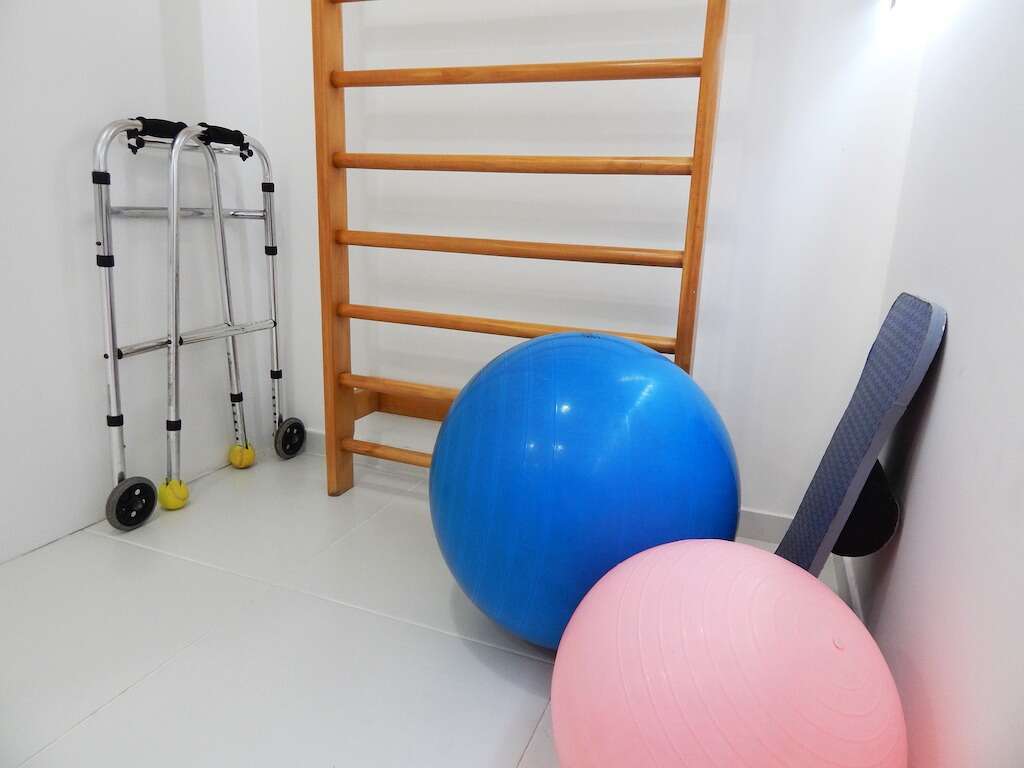Symptoms of BPV
It is a common misunderstanding that vertigo is the fear of heights. This misunderstanding came about because of a popular movie by that name that was released in the 1950s. What the word really means in medical terms is the sensation that everything around you is spinning when it is not.
Benign positional vertigo is not a dangerous condition, although it can be unpleasant. There are a number of potential underlying causes, one of which is an infection. Although not dangerous, the symptoms should still encourage you to see a doctor to get the condition treated as soon as you can.

1. The Inner Ear
In order to understand the symptoms of BPV, it can help to understand what is going on. The inner ear houses the vestibular organs which are a part of the vestibular system. These vestibular organs includes 3 fluid-filled, hoop-shaped canals called labyrinths.
When we move our head, the fluid also moves, which, through a series of events, allows us to know whether we are standing upright, laying down, and also helps us detect changes in direction. If there was to be a problem with the inner ear, such as an ear infection, then this structure can be affected and the patient can have difficulty with perceiving movement as a result.

2. Vertigo
As the name suggests, the main symptom of benign positional vertigo is vertigo. This is a sensation that everything around the patient is moving, when it is not. It will sometimes be experienced as though objects are swinging to and fro. At other times, the patient will experience a sensation of a spinning room.
The severity of vertigo can vary considerably from person to person. In some cases, it will only be mild and not have a significant impact. In others, it can leave the patient effectively immobile. The symptom should hopefully clear up altogether when the underlying cause has been treated.
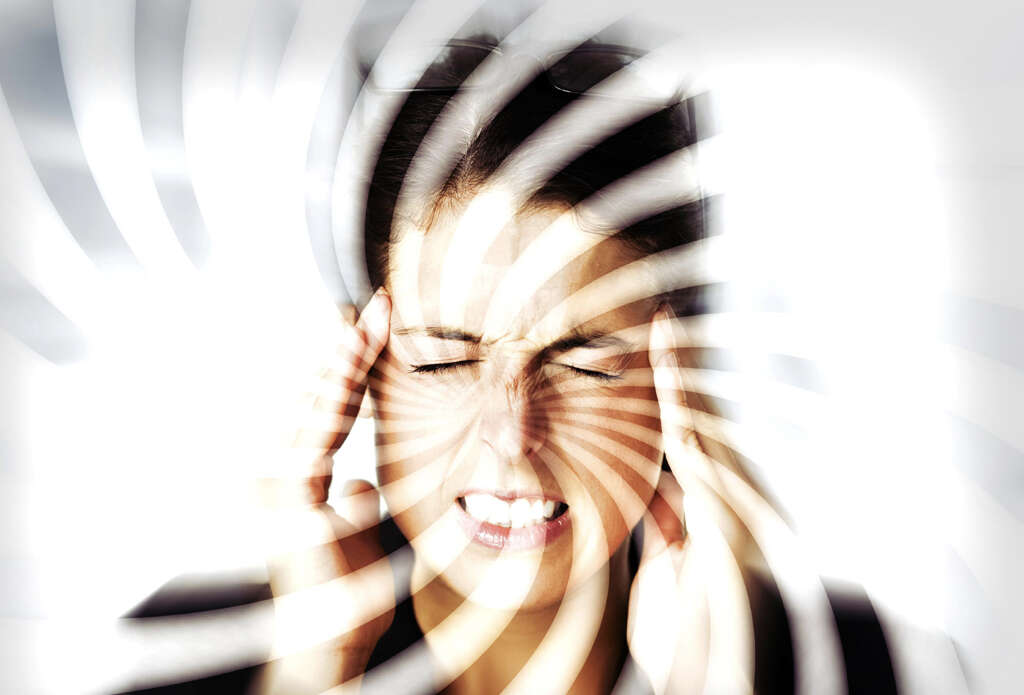
3. Nausea
Nausea is that unpleasant sensation that you are unwell and maybe even about to vomit. There are many potential causes, and one of them is benign positional vertigo. Vertigo causes the sensation of spinning. If you have ever spun yourself around in a circle, you may feel quite ill afterwards.
Some people will also experience motion sickness, although this is usually experienced more so by children. Regardless, it will be only very mild in some cases, but it can be debilitating in others. Medication is available that might at least be able to help limit the severity of the condition.

4. Vomiting
When there is nausea, then vomiting is usually not far behind. It is not necessarily the case that nausea will lead to vomiting, but it often will. People will also often experience vomiting when they are suffering from motion sickness and other similar conditions.
The vomiting should hopefully not be too serious, but it can be problematic if the patient is vomiting too often. It can mean that they are unable to get sufficient nutrition form their food. This might result in malnutrition and dehydration, so it is a good idea that the patient is monitored, especially if they are vulnerable.

5. Hearing Loss
As already mentioned, benign positional vertigo is often caused by a medical condition like an infection of the inner ear. Depending on the underlying cause, the other functions of the inner ear can also be affected. This includes what is perhaps the ear’s main function, which is hearing.
It is important to understand that benign positional vertigo does not cause hearing loss but instead, an underlying condition may cause hearing loss and vertigo at the same time. Depending upon the cause, the change will only be very slight in some patients, if they even notice it at all. In other cases, the patient might lose their hearing sensation altogether, although maybe in just one ear.
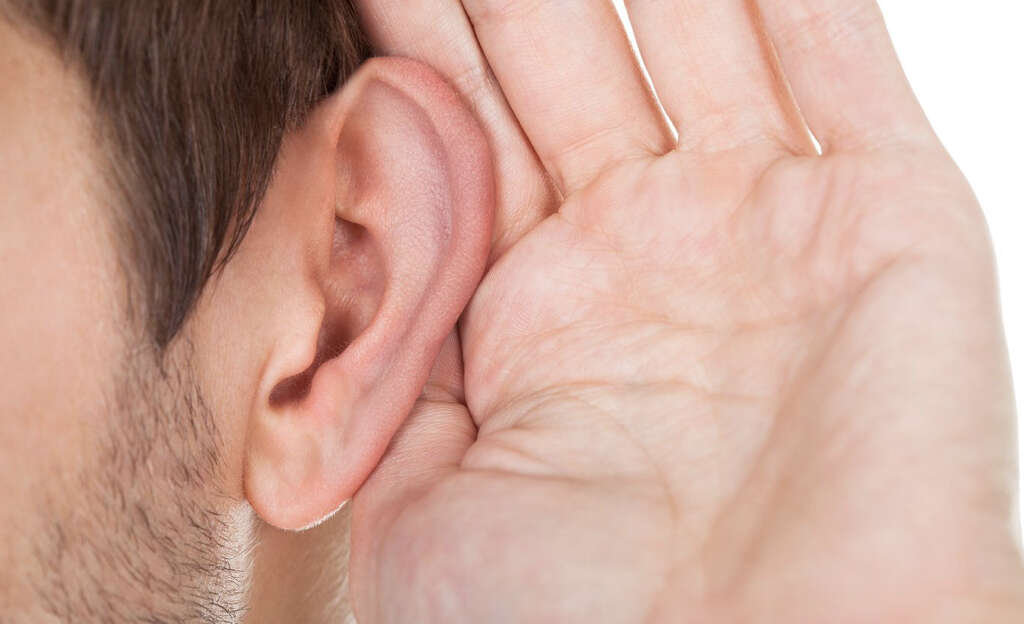
6. Blurred Vision
Your brain works with the eyes and the ears, along with other organs, to know and understand what is going on around us. This means that if one of the senses were affected, then others can also begin to struggle. This will sometimes happen in cases of benign positional vertigo.
With the ears struggling to cope and the brain confused as to what is happening, then the patient’s vision can also become blurred. The brain can find itself trying to compensate for movement that is non-existent, and this results in blurred vision. Not being able to see clearly can make it even more difficult for the patient to know what is going on around them.

7. Lightheadedness
We have all had those times when we get lightheaded and we need to sit down for a while. Quite often, it is down to us not having eaten enough. In such cases, something to eat and some rest will be all that we need. Depending on the reason for the symptom, however, it is not always that straight forward.
If you have benign positional vertigo then you might find that you too will feel lightheaded at times. It will mean that you will sometimes need to sit down for a while, but the sensation should hopefully pass before too long.

8. Dizziness
If you were to spin around for a while, things will continue to ‘spin’ for a while even after you stop. This is because the fluids in the vestibular system don’t settle down straight away, and this confuses the brain into thinking we are still in motion. This results in the sensation of dizziness.
Problems with the inner ear can also cause the brain to become confused, and feel movement even when the patient is still. It is often an unpleasant sensation and it can make the patient feel quite ill. The dizziness can also make it difficult for the patient to stand or walk, forcing them to sit down.

9. Pain
Some people with benign positional vertigo will experience considerable pain in one or more of their ears. Pain is not a direct symptom of BPV, but it can be a symptom of an underlying cause – such as an ear infection. The severity of the pain can be quite agonizing in some cases.
It should be noted that while an ear infection will usually clear up with no permanent damage done, this is not necessarily the case. A severe enough ear infection can cause permanent loss of hearing if it is not treated in time, so make sure to see a medical professional as soon as you are able to.

10. Loss of Balance
Balancing is a lot more complex than we think, with our brain constantly making corrections. It is helped by the vestibular system that helps tell the brain about any movements that need to be made. If this system as not working properly, then balancing can become a lot harder than usual.
Patients with the condition can find it difficult to even stand up without support. They will often need to be careful to avoid hurting themselves should they fall over. In some cases, it may be necessary for them to be escorted from place to place to help ensure they make it safely.









